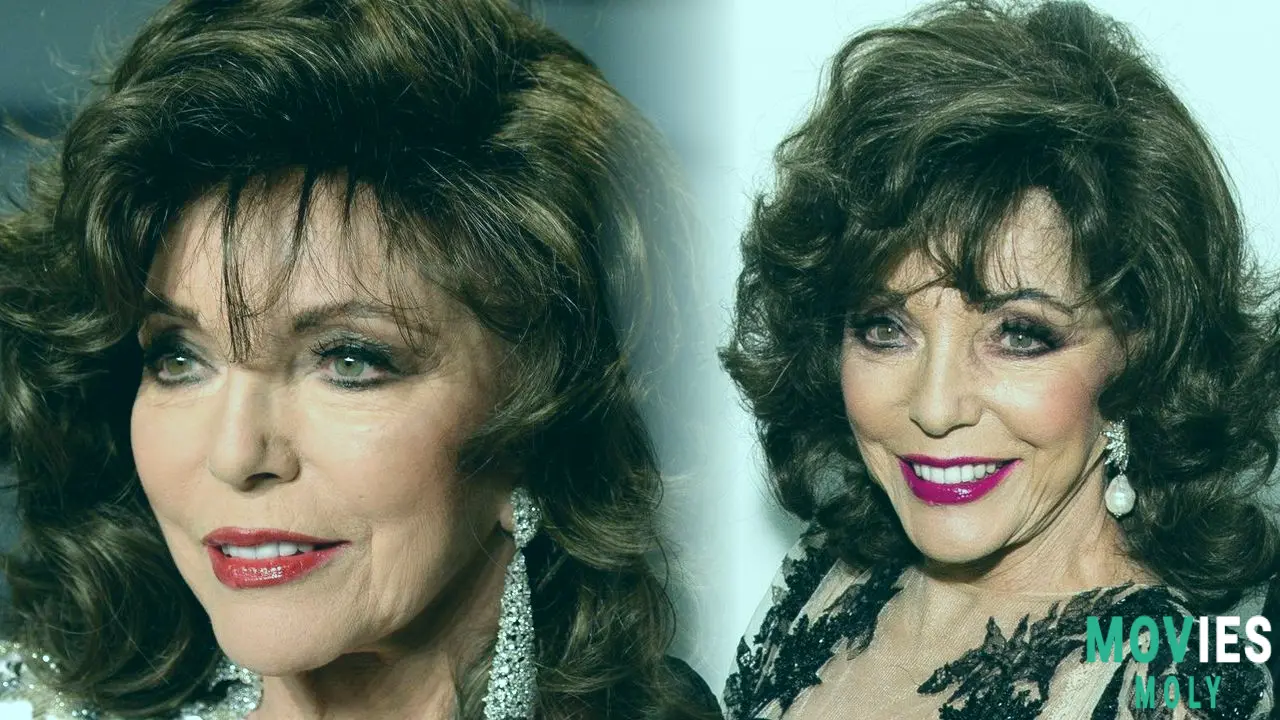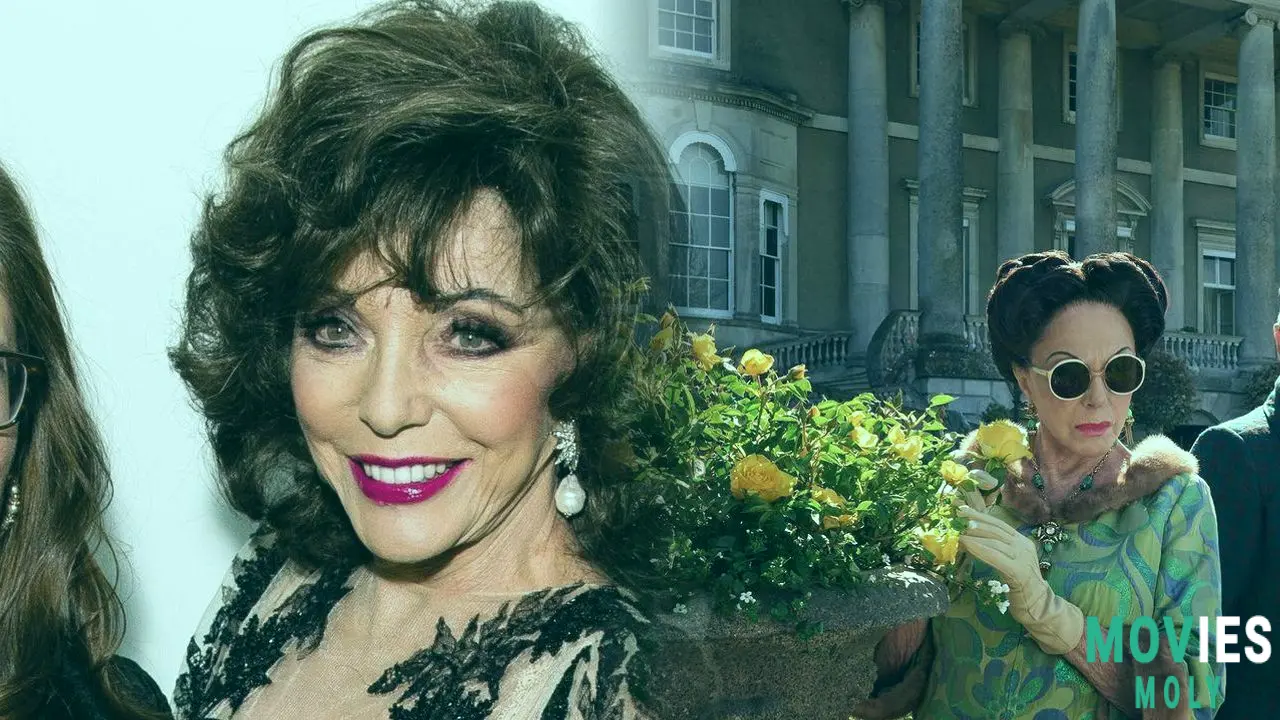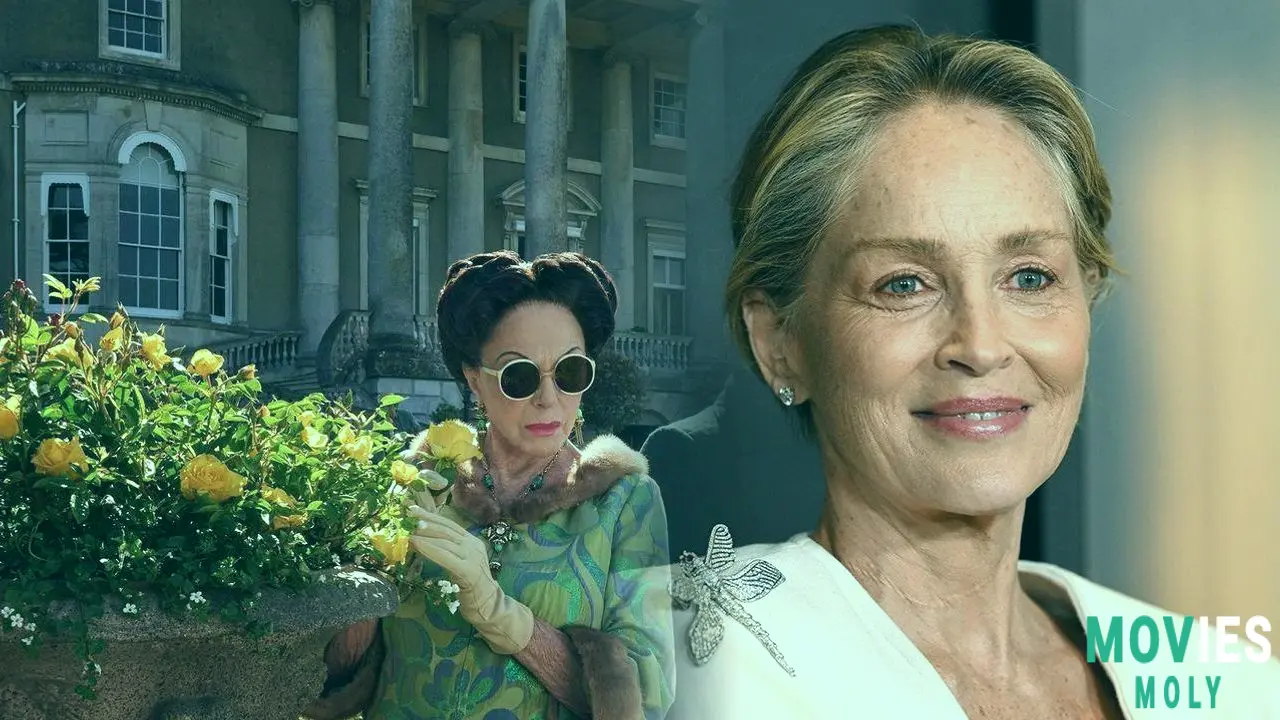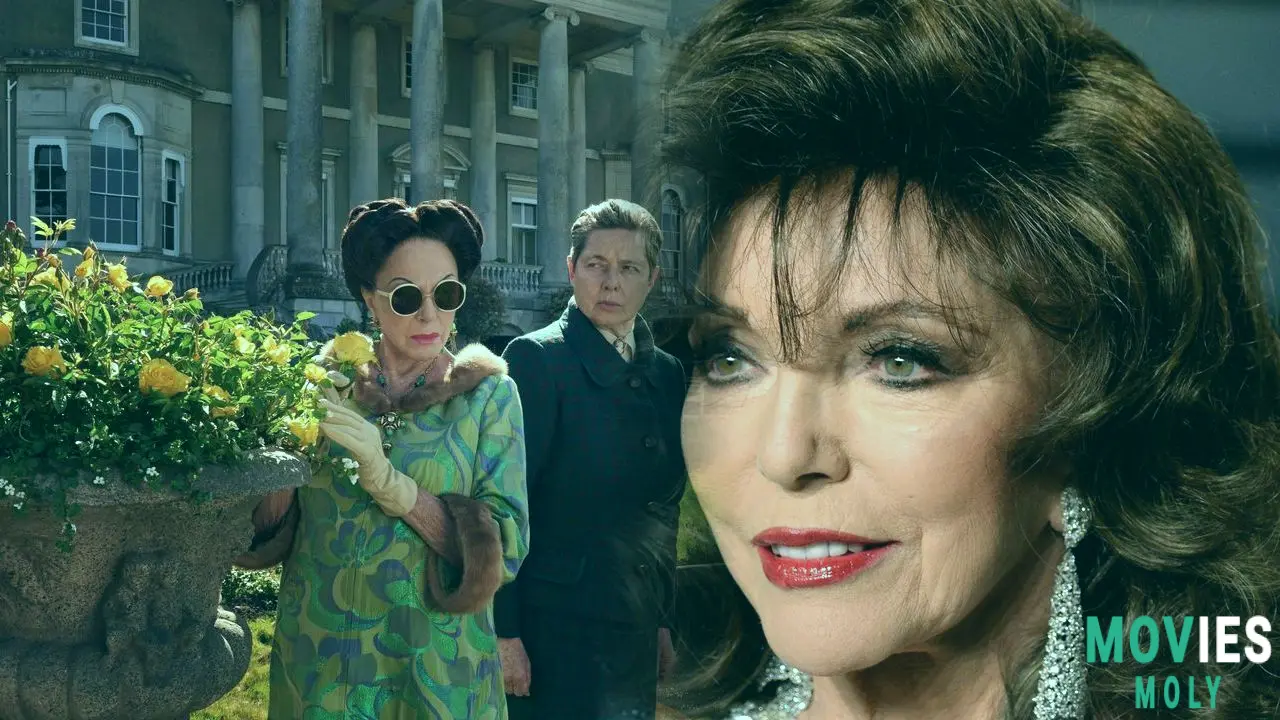When I learned that Joan Collins will play Wallis Simpson in the upcoming biopic The Bitter End, my immediate response was, "How has this taken nearly a century?" Collins, 92, finally takes on the part of another lady whose life has been defined by public attention and severe judgment. This isn't just casting; it feels like historical poetry created expressly for two women that society frequently misunderstood.
The "Pouting Panther" and The Duchess: A Lifetime of ParallelsCollins, like Wallis, knows the double-edged sword of public scrutiny.
Collins' latest throwback as a 20-year-old "Pouting Panther" gave me goosebumps, not only because of her timeless beauty, but also because it brilliantly captures her knowledge of Wallis' path. Both women navigated unprecedented celebrity, which came with compulsive public dissection. After Edward VIII abdicated the monarchy, Wallis was subjected to continuous commentary portraying her as either a dangerously alluring villain or a social climber. Collins, too, spent decades fighting the industry's reductive pigeonholing, first as a leggy sex symbol in the 1950s and 1960s, then as the classic blonde bombshell villainess in Dynasty with her famous Alexis Carrington Colby character.
The similarities are more than simply cosmetic; they both have history of perseverance in the face of criticism. Collins, like Wallis, who faced severe scrutiny during her exile in France, has weathered career and personal setbacks with rebellious elegance. Her ambition to alter roles for older women in Hollywood reflects the Duchess' reluctance to let exile limit her impact. And both understood image craft: Collins' famed skincare discipline (sun protection since age 20! Night cream since 14!) mirrored Wallis' legendary commitment to style and presentation as life armor.
From Carrington To The Coronation Crisis: Why Collins "Gets" Wallis

Collins' Alexis underwent practical research for this role.
Let us say the obvious: Joan Collins understands measured composure more than any other current actress. Alexis Carrington taught Collins how to play a woman who was seen as a "divorcee of sinister intent" - an eerie echo of how Wallis was perceived. What makes this so brilliant is Collins' ability to recover those stories. Collins' own personal past (five marriages) became tabloid fodder as the globe obsessively scrutinized Wallis' romances. Nonetheless, she used that scrutiny to captivate audiences for nearly 70 years in cinema, television, and theater.
Collins told The Guardian that she's "always been fascinated by Wallis, because I think she was unfairly treated," and her empathy cannot be exaggerated. Society vilified and fascinated with Wallis, dismissing yet immortalizing her. Collins is intimately familiar with that dance. I've always felt Alexis' greatness stemmed from overlaying vulnerability beneath the draped garments. That depth, realizing that Wallis was more than just a power-hungry seductress, but a woman imprisoned in historical drama, is exactly what The Bitter End requires.
The Bitter End Could Be Collins' Ultimate Triumph.

An Untold Story That Finally Places Wallis As The Lead
The Bitter End, directed by Mike Newell (Four Weddings and a Funeral) and written by Louise Fennell, pulls the focus away from Wallis Simpson's sensational peak and toward her tragic twilight years. Exploring coercive control under her lawyer Suzanne Blum and her spiral into isolation is dismal yet brilliant material. For Collins, a rock of discipline who says, "What makes me happiest is seeing my children happy," playing Wallis' unraveling will allow her dramatic range to shine in ways we haven't seen before. She grounded Dynasty with unexpected emotional stomach blows.
The casting feels like kismet: Isabella Rossellini portrays Blum opposite Collins, a coupling rich in thematic resonance regarding manipulation and agency. Collins made history by portraying fierce survivors, and this character allows her to convey the heartbreaking consequence. Her steely vulnerability at 92 gives a heartbreaking depth to Wallis. Watching her navigate passages where Wallis' glamour becomes both a prison and a tarnished weapon might confirm this as late-career performance on par with Hepburn's The Lion in Winter.
Why this role is more important than just great casting.

Joan Collins is the only choice for Wallis Simpson.
Typically, Hollywood responds to biopics by casting young actresses to play women over 50. The Bitter End defies this by committing Wallis' darkest moments to a nonagenarian who exudes lived experience. Collins' decades of combating ageism make her involvement groundbreaking, demonstrating that complex women's stories do not end at 40. Her journey through her daughter Katy's near-fatal childhood accident adds significant emotional depth. She knows suffering beneath public facades better than any method actor can.
In the end, this job feels more like fate than a choice. Both women defied traditional notions of femininity and power, as self-made icons surviving oppressive hierarchies. When Collins confronts Wallis about being "unfairly treated" during her isolation in Boulogne, she is not simply acting; she is reclaiming history for misunderstood women everywhere. That strikes a deep chord with someone who built empires by portraying women that others regarded as monsters. I can't fathom anyone portraying Wallis Simpson's complex humanity with such rightful empathy.
The Bitter End is now showing in London and Paris, marking a magnificent culmination of two intertwined histories. If anyone deserves to redefine Wallis Simpson's story, it's Joan Collins. After nine trailblazing decades in the spotlight, she's earned the right to write history her way.




